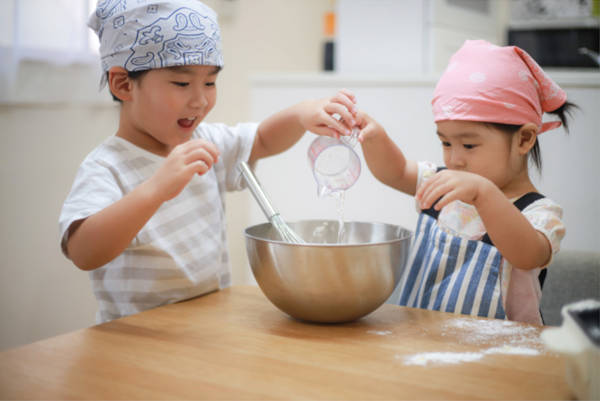In August 2024, the Food Standards Agency (FSA) released new guidance on using raw flour in the early years. For this article, we spoke with a representative from the FSA to bring you the latest on flour heat treatment and how the guidance may affect your current risk assessments.
The latest FSA guidance on flour use in the early years
The new guidance comes after a review of available evidence around heat treating flour in a consumer setting (like a nursery). The evidence shows that heat-treating raw flour in the early years may be unreliable in reducing the risk of harmful germs.
Heat treating flour may be unreliable when carried out in a consumer setting. There are factors that can’t be controlled in this environment, as they can in industry settings.
Washing hands thoroughly before and after handling flour and cleaning all surfaces and utensils properly will help to reduce the risk.
FSA Communications Team, 5th September 2024
Why can raw flour be dangerous for children?
Flour is a raw product, this includes wheat, gluten-free, corn, gram, and rice flour. Flour is not intended to be eaten raw. Nurseries use raw flour for sensory and craft activities like making playdough and tuff tray activities.
Flour has not been treated to kill germs and bacteria, which are destroyed during baking or cooking. Raw flour may still contain germs that can cause illnesses like food poisoning.
Raw flour can also contain Escherichia coli (E. coli) and Salmonella. These germs may contaminate the grains used to make flour during the harvesting or production process.
As we know, babies and toddlers explore the world with their senses (taste being a favoured one!) When using raw flour with babies and toddlers, care must be taken to reduce the risk of food poisoning through unintentional ingestion of raw flour.
Why is flour heat treated?
When raw flour is heat-treated, it kills harmful bacteria. For a nursery, this reduces the risk of illnesses due to the high potential for children to ‘taste’ the flour. In the food industry’s manufacturing process, methods are used to kill any bacteria that may be present.
This is why ‘raw cookie dough’ is safe to be used in industry-created ice creams.
How do you safely use raw flour in nurseries?
If you aren’t using heat treatment in your nursery, the FSA give guidance on how to safely use flour with children.
- Don’t eat or taste uncooked flour
- Keep flour and cake mix in a sealed bag or container
- If cooking, follow the guidance on the packaging carefully
- Wash hands before and after handling raw flour
- Ensure all surfaces and utensils are washed with warm, soapy water as a minimum

Activities that include raw flour in early years
You may use flour for sensory play activities for babies and toddlers in your setting or are reluctant to if it requires heat treatment per your risk assessment policy. Here are a few EYFS activities that include the use of raw flour:
Playdough Making
Handmade playdough can be a staple for messy play activities in nurseries. The tactile mixture helps with fine and gross motor skills, coordination, and hand and wrist strength while listening to instructions – no wonder kids love it!
Sensory Bins
You may use pasta, rice, or flour to make a homemade sensory bin. Children can sieve through a container to find smaller objects. Do take care when using flour over rice or pasta for these types of messy play activities, as it can be easy to create a flour dust cloud!
Top Tip: If you have a child with Coeliac Disease, you’ll need to add the use of flour in sensory activities to your risk assessment to prevent contact with any products containing gluten (like flour or pasta).
Salt Dough Ornaments
During Christmas time, many nurseries create salt dough crafts to be sent home as a keepsake. You may still have some of your own salt dough Christmas decorations or those made by your children.
Baking with Toddlers
Baking simple recipes with toddlers can be a perfect opportunity to build leadership, speaking, and listening skills, not to mention the chance to develop early Maths skills with measuring and weighing ingredients.
If your current risk assessments for flour use explicitly state all flour should be heat treated, you may want to assess these. If you feel the risks are suitably prepared for alongside your good hygiene and food preparation processes, you may choose to remove the need to heat treat flour in your setting.
You can access more information about managing risks and risk assessments in nurseries online.